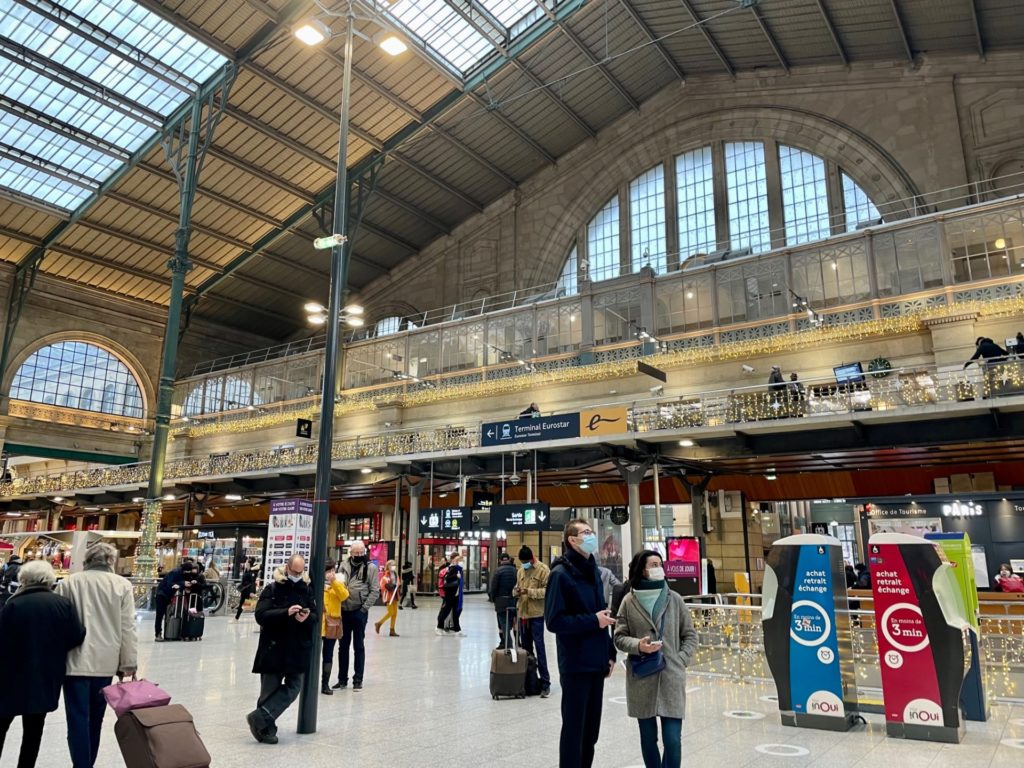France is tightening its coronavirus restrictions as the country battles to keep its infections under control, with cases climbing in recent weeks.
France is seeing an average of 70,643 new Covid-19 cases a day, up 39.31% over the course of just one week, according to data from the country’s Coronavirus Dashboard.
Mandatory telework, more masks, rules for eating and drinking in public
New measures include a ban on standing concerts (people must be seated) and a cap on large gatherings (2,000 people indoors, 5,000 outdoors), with exceptions for political meetings and religious worship. Eating and drinking in bars and restaurants can only be done while seated.
Eating or drinking in cinemas, theatres and on public transport, “including long-distance transport,” will be entirely prohibited from next Monday.
Masks – already mandatory for indoor spaces – will be required outdoors in all city centres.
Related News
- 'Do not come here': Antwerp urges Dutch people to stay away
- ‘Glühwein has won over culture’: Belgium’s virologist criticises closure of cultural sector
For at least the first three weeks of the new year, telework will be mandatory “for all employees for whom it is possible” for “a minimum of three days per week and four days when possible,” Prime Minister Jean Castex said.
The country is also reducing the amount of time a person must wait before receiving a booster shot from six months to four.
Announcing the measures on Monday 27 December, French President Emmanuel Macron described the pandemic as “a film that never ends” and said that France faces an “extremely tense health situation.”
Affected sectors up in arms
The announcement caused “despair” for the music sector in particular, just as Belgium’s cultural sector felt particularly slighted by new restrictions here.
“We're back to being a banned sector,” Malika Séguineau, head of the national union of music and variety shows, told Agence France-Presse (AFP).
“It's terrible. We were not consulted. I was talking to producers involved in tours: they are going to be cancelled because there is no more availability in 2022 between all the postponed dates and the new shows.”
Also frustrated were the food and hospitality sectors. “This is a very severe turn of the screw. It's a disaster for bars and cafés. It's a disguised closure,” Didier Chenet, president of the union Groupement National des Indépendants (GNI), told AFP.
What didn’t pass
For now, the French government ruled out a curfew and the outright closure of bars and restaurants; it will close schools “only as a last resort.”
“We will not postpone the start of the new school year or switch secondary schools to distance learning,” the Prime Minister said. The country plans to step up surveillance and screening in schools at the start of the new school year.
The government also decided against a curfew for New Year’s Eve but encouraged people to limit big parties and gatherings, ventilate indoor spaces, and self-test.
The next council will be held on 5 January 2022.
Concerns as a neighbouring country
When the Netherlands went into lockdown ten days ago in response to rising infections, many Dutch people began visiting nearby Belgium for their shopping and recreational needs, where restrictions were less severe.
Now that France is similarly imposing restrictions, in the food and hospitality sector in particular, there are concerns that border towns could see a similar influx of French tourists.

